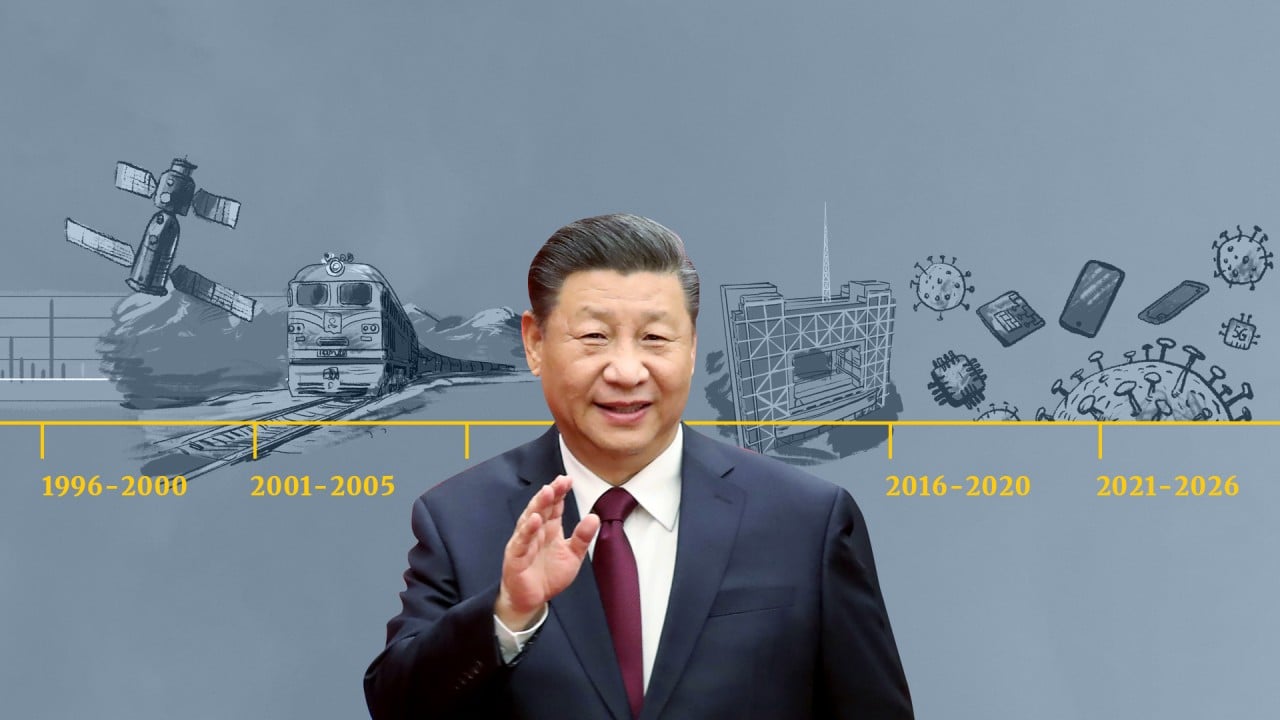
US-China tech war: Washington intensifies pressure on Beijing in proposed new policy of ‘strategic competition’
- The Strategic Competition Act of 2021 sharpens the US government’s focus on thwarting China’s economic and hi-tech ambitions
- Analysts see the legislation offering no surprises for China, as more domestic hi-tech entities are hit by US trade sanctions
The US Senate’s new legislation, the Strategic Competition Act of 2021, lays out a wide-ranging strategy for the first time to contain China’s global expansion, providing a significant milestone as the relationship between the two economic and hi-tech superpowers deteriorate.
“The legislation will have a profound effect on every Chinese technology firm,” said Cameron Johnson, an adjunct faculty instructor at New York University and a partner at Shanghai-based Tidal Wave Solutions.
“This includes in terms of developing new technologies, global investment strategies, selling into US-allied countries, receiving support from the Chinese government, and how the country’s technology market interacts and influences global governance and standards-setting.”
China, according to the bill, “is close to its goal of becoming the global leader in science and technology”. It indicated that China’s drive to become a “manufacturing and technological superpower” and to promote “innovation with Chinese characteristics” has come at the expense of human rights and long-standing international rules of economic competition.
That presents a challenge to US national security as well as the security of its allies and like-minded countries, it said.
“China has an overall goal, and I don’t criticise them for the goal, but they have an overall goal to become the leading country in the world, the wealthiest country in the world and the most powerful country in the world,” Biden said last month.
“That’s not going to happen on my watch, because the United States is going to continue to grow and expand.”

The new bill, which was crafted by the Senate Foreign Relations Committee and is up for discussion on April 14, is not expected to surprise China at all.
“China will definitely study this legislation in detail,” said Edison Lee, an equity analyst at Jefferies Hong Kong who covers China’s telecommunications industry. “But China is fully prepared [for the proposed strategy]. This is not anything worse than the Trump era. China has already given up on the US.”
Nine things you may not know about the US-China tech war
A major provision in the Senate bill involves strong measures to protect intellectual property (IP). US lawmakers have proposed the creation of a violators’ list, which will identify companies that have engaged in IP theft or coerced technology transfer. This list is set to be established within a year of the bill’s enactment.
Other analysts, however, see the development hurting globalisation.
“Insofar as the proposed legislation will grant further powers to impose sanctions, and that other jurisdictions will follow suit and impose their own sanctions and counter-sanctions, we can expect a significant negative impact upon the tech sector,” said Paul Haswell, a partner who advises technology companies at international law firm Pinsent Masons.
Biden containment plan requires Beijing respond with ‘grand strategy’
“This will not only hamper international cooperation in the tech space, but may have the knock-on effect of stifling innovation.”
“Tech companies across the globe have benefited from the globalisation in their industry,” Haswell said. “It would be a shame for that globalisation to come to an end, as the ongoing tech war further escalates.”
The centres hit with the restrictions include the National Supercomputing Centre in the eastern city of Wuxi, home to the Sunway TaihuLight, which was considered the world’s fastest when it was launched in 2016 – the first time a supercomputer took the rank without using any US technology



